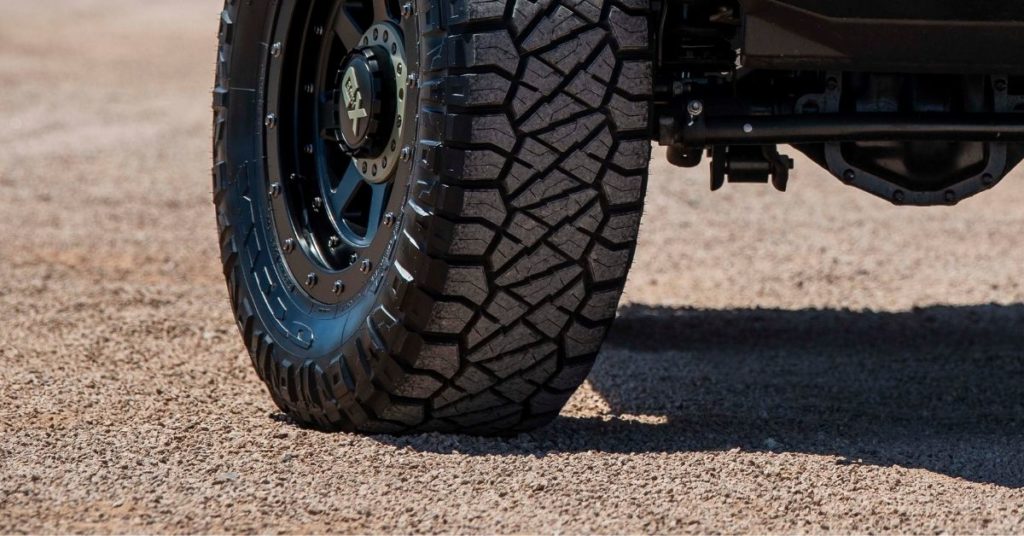When you purchase a new car one of the biggest things you should consider is fuel consumption. 4×4 and 4×2 vehicles are often larger, heavier, and more expensive. The last thing you need is to spend a small daily fortune running the vehicle!
In this article, we will explore the best choices you can make when buying a 4×4 or 4×2 vehicle. To help increase your car’s affordability and fuel consumption.
What’s the Difference Between a 4×4 and a 4×2?
4×4 and 4×2 vehicles are often purchased for those looking for a car that is more capable of driving on rural roads or off-road tracks. You may have also heard these vehicles being referred to as four or two-wheel drives (WD).
The key difference between the two is the number of wheels that directly receive torque (energy) from the engine. This energy gives the car the power to overcome the traction issues that cause normal cars to be undrivable on difficult terrains. This extra torque does come at a cost, particularly regarding fuel consumption and the cost of running your vehicle.
Here is a more comprehensive explanation of the differences and benefits of each type of car:
| 4×2 | 4×4 |
|---|---|
| Uses less energy making it more efficient in terms of fuel consumption. | Has more power to overcome difficult terrain. |
| Is good for semi-rural roads and driving conditions. | Can handle harsher, off-road conditions. |
| Are less expensive to buy from the factory floor. | Offer the best of both worlds in that you can choose to operate the vehicle as a 4×2 until terrain becomes unmanageable. |
| More agile and handles turning and steering easily. | Can be difficult to steer and control. |
| Drives better on solid surfaces e.g., road base. | Can handle most surfaces within reasonable conditions. |
| – | Weighs more due to the extra mechanical components needed to convert the vehicle into 4WD. |
Therefore, because of mechanical and weight-related considerations, a 4×2 offers the best possible fuel consumption and depending on your needs, may present a more economical option when purchasing a vehicle.
How to Increase the Fuel Economy of Your 4×4
It’s important to note that even though 4x2s are more economical to run they do not have the same abilities and benefits as 4x4s. If you spend most of your time off-road enjoy the best this country has to offer then a 4×2 simply may not meet your needs. It is possible to reduce the fuel consumption of your 4×4 using some simple tips and tricks to help you make the most of your money.
Keep in 4×2 settings as much as possible
The main issue that causes 4x4s to consume extra fuel is the fact that power must be sent to all four wheels at once. The easiest way to combat this is to ensure that you only have the 4×4 setting activated when it is activated.
There’s no point cruising around highways and relatively solid tracks with this extra feature activated and it will only cause you to burn through your fuel at twice the rate as a 2WD vehicle.
Limiting the weight in your vehicle
Weight is another key factor that makes 4×4 less economical in terms of fuel consumption. Extra weight requires extra power to move, and when you are moving uphill on rough roads, it’s astonishing how much difference a few extra bits and bobs can make.
Therefore, if you are planning an off-road trip consider exactly how appropriate the items you packed are in terms of the length, location, and duration of your trip.
The more, heavy things you pack are the more fuel you will burn as you drive. If you go on frequent camping trips it might pay to consider investing money in a good quality set of lightweight cooking utensils and kitchenware.
Pots, pans, and plates can often be heavier than you realize and if you camp frequently this may be an awesome strategy that pays itself back in terms of saved fuel in no time.
Try to avoid towing as much as possible
We are not discouraging you from taking full advantage of the 4×4 as a towing vehicle for caravans and camper trailers. It’s important to consider how much towing you do with the vehicle.
If it’s possible to unhitch your load when you go off exploring this will save you as much fuel as possible. Trailers and the like are quite heavy in themselves, and if you are driving uphill can often function as dead weight dragging you downhill.
In line with the previous comment before you begin your journey ensure you are only towing what you need for this trip. Removing even a few items can save you hundreds of fuel over the long run.
Purchase a high-quality set of off-road tires
Torque is provided to the wheels of your car when you are losing traction. The tires you chose to equip your vehicle with are key to the amount of traction your car has.
Investing in a good set of tires can dramatically increase the amount of energy your car expenses. In terms of driving off-road, this can save you hundreds on fuel over the lifespan of the tires.
How to Choose the Best Tire for Fuel Consumption

Purchasing tires that suit your needs is an excellent strategy to enhance your fuel economy in both 4×2 and 4×4 vehicles.
To make the best decision in terms of purchasing tires you should consider:
- What terrain and conditions do you drive in: there are different tires for all kinds of terrains and conditions e.g., highway, mud, snow, off-road. To save the most money consider what terrain you plan to drive on most. Choosing tires that suit this terrain will help you get the most out of your vehicle.
- Try to avoid buying second-hand tires: these may be cheaper but also less effective at ensuring the traction you are buying new tires for. Over time the tread which provides your car the grip and traction you are looking for will wear. It’s best to bite the bullet and buy new tires whose grip will last you longer and give you the best possible results.
- Choose name brand tires: choose reputable and mainstream brands like Michelin, Goodyear, and Bridgestone. There is a reason that millions of people buy their products from all across the world. You will find these products should last longer and give you more effective traction than generic, cheaper brands.
- Consult a local professional: go to your nearest tire shop and discuss the options they recommend for your needs. These mechanics deal with tires every day and will have the best idea of the brands worth investing your money in.
Conclusion
Cars can be expensive to run no matter the type. The larger and more complicated your car is the more it is weighed down by mechanical materials, which decreases your fuel efficiency.
4×2 cars offer better fuel efficiency than 4×4 ones however you should purchase based on your personal needs as there are plenty of strategies to increase the fuel efficiency of your 4×4 as well.
- Tips and tricks For Setting Up Camp Like a Pro - September 11, 2023
- The Best Multi-Tools for Overlanding Adventures - August 25, 2023
- Off-Road Navigation Tips for Overlanders - August 13, 2023


